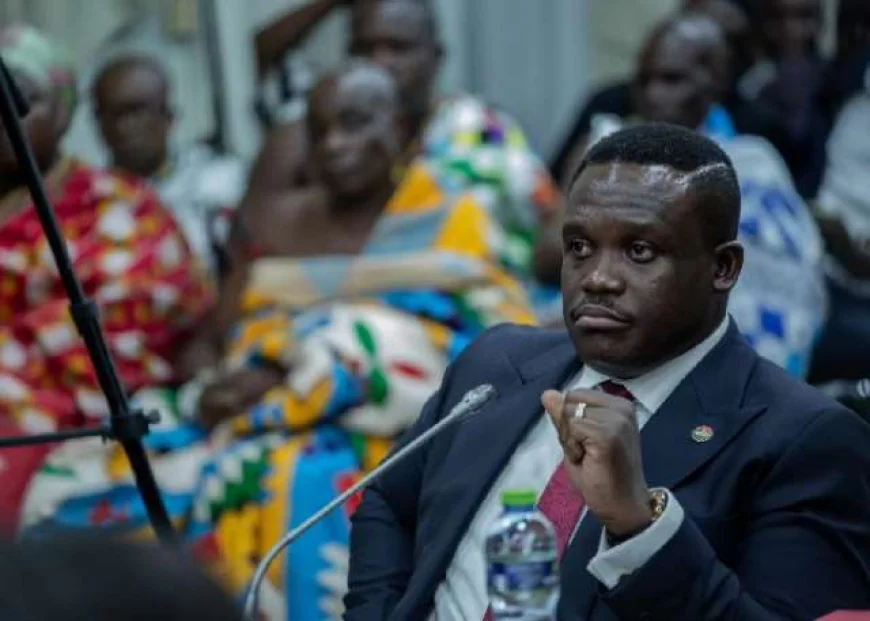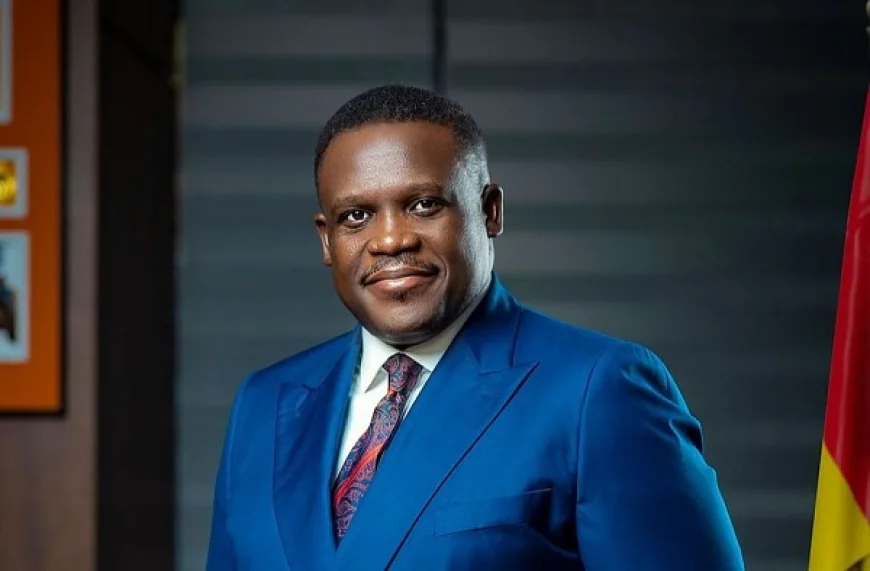Sam George: As the government examines the nearly 39% telecom tax, data costs may decrease even more.
Following government efforts to review what has been described as a nearly 39 percent tax burden on telecommunications services, Ghana may soon see further reductions in mobile data charges.

Following government efforts to review what has been described as a nearly 39 percent tax burden on telecommunications services, Ghana may soon see further reductions in mobile data charges.
Mr. Samuel Nartey George, the Minister for Communications and Digitalization, stated during a press briefing on Tuesday, June 10, 2025, that talks are being held with the Ministry of Finance to rationalize the different taxes that are causing high data prices.
Read Also: Full List of Hospitals Still Operating During GRNMA Strike Published By Ministry of Health - Ghana
"These taxes account for nearly 39% of consumer spending," Mr. George informed reporters. "We are working with the Finance Ministry to examine the components, and once that is finished, customers will be able to see further reductions in their data charges."
The minister claims that among the taxes are the Communications Service Tax (CST), the Ghana Education Trust Fund (GETFund) levy, the COVID-19 levy, the Value Added Tax (VAT), and the National Health Insurance Levy (NHIL). "Telecommunications companies would be expected to pass the benefits on to customers if the tax burden is adjusted," he said.

Additionally, Mr. George declared that starting on July 1, 2025, all three of the major network providers will launch new data packages. The GH¢400 data bundle offered by AirtelTigo Ghana will now have 236GB instead of 190GB. Additionally, Telicell's GH¢400 bundle will increase by 10%, from 90GB to 250GB.
Due to its 76% mobile user share, MTN Ghana, which Mr. George characterized as having "Significant Market Power," will raise all of its bundles by 15%. Previously available for GH¢350, its GH¢399 package will now offer 214GB instead of 92.88 GB. "The providers bear the expense of these increases, and I applaud them for their efforts on behalf of Ghanaians," Mr. George stated.
The government anticipates finishing a protracted spectrum allocation process by the first week of July 2025, he continued. He claimed that this action would aid in resolving persistent problems with data service quality. Together, MTN, AirtelTigo, and Telecel have committed to spending about $150 million by the end of the year on infrastructure improvements, such as the purchase of spectrum, transmitters, and equipment.
According to Mr. George, Telecel has already obtained regulatory approval to use a recently issued Connecting Entity License to access the Next Gen Infraco (NGIC) 2,100MHz spectrum, which should enhance service delivery in the near future.
In order to obtain a specific electricity tariff for the telecom industry, akin to that which is applied to mining firms, the ministry is also collaborating with the Ministry of Energy and the Public Utilities Regulatory Commission (PURC). Mr. George responded to previous criticisms by stating that he had previously disapproved of certain decisions made by the previous administration, including the upfront collection of the Communications Service Tax and the delay in spectrum release, both of which he claimed contributed to high user fees.
"Just as the Minister for Trade cannot order GUTA members to lower their prices, I cannot impose prices in a free market," he stated. "However, we are collaborating with the industry to identify practical solutions." Quality-of-service evaluations will be conducted by the National Communications Authority from October to December 2025. Operators who don't adhere to the rules will be disciplined.
"We cannot fix everything in four months after eight years of poor management," Mr. George stated. "However, the steps we are taking will result in significant improvements in the quality of service and the amount Ghanaians pay."


